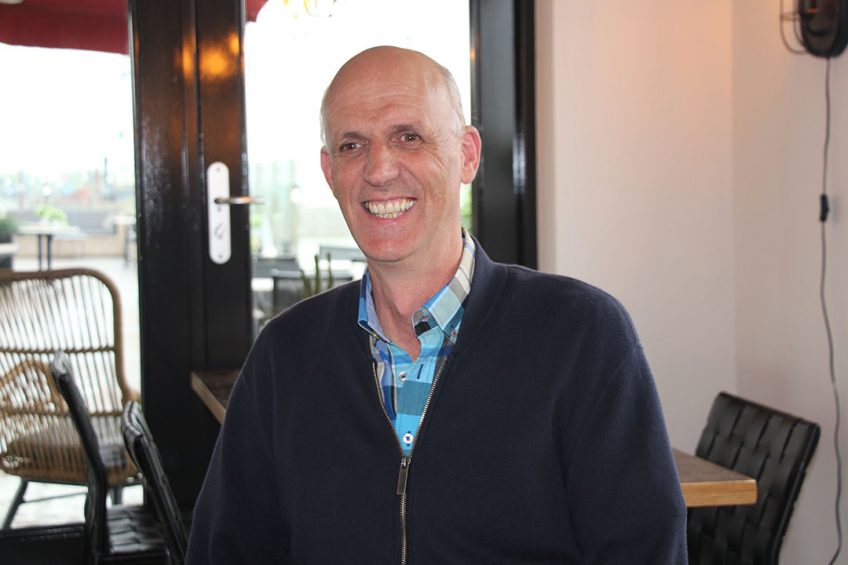“Poultry education must constantly adapt to the new reality”

Professor Sjaak de Wit holds influential positions in the poultry veterinary sector and has strong opinions on many poultry issues. De Wit’s view is that universities across the globe need to professionalise when it comes to poultry education.
Professor Sjaak de Wit studied veterinary medicine in the Faculty of Veterinary Medicine at the University of Utrecht and obtained his PhD from Utrecht University in 1997 on the ‘Detection and transmission of Infectious Bronchitis Virus’. Since 1989 he has held the position of senior poultry researcher at the Dutch Royal GD (formerly Animal Health Service). In 1998 he was recognized as a specialist in poultry healthcare. In 2008 De Wit was one of the founding diplomates of the European College of Poultry Veterinary Science (ECPVS) of which he has been president since 2016, and is currently post-president (until 2022). De Wit is also junior vice president of the World Veterinary Poultry Association (WVPA). De Wit: “Every 2 years we organise a global conference but the WVPA has many national branches as well. These branches organise several national meetings a year that cover technical subjects, plus discussions of general poultry issues.” De Wit is still proud of the fact that in 2014 he was elevated to the World Veterinary Poultry Association’s Hall of Honour.
 Sjaak de Wit
Sjaak de Wit
Professor Sjaak de Wit is head of the Integrated Poultry Health Care department in the Veterinary Faculty at Utrecht University (UU), which he combines with his position as senior researcher at Royal GD animal health service. Alongside these roles, he holds several influential positions in the international veterinary community.
Best of both worlds
Since 1 July 2019 De Wit has combined the new position of Professor of Integrated Poultry Health Care in the Veterinary Faculty at Utrecht University (UU) with his work at Royal GD. “I am grateful that Royal GD enabled me to assume this role alongside my position as senior researcher at Royal GD. It brings together the best of both worlds, so to speak.” As both a professor and a poultry veterinarian, De Wit can look at poultry-related issues from a more technical and holistic perspective.
In terms of the global developments taking place in the poultry sector, in the Western world De Wit sees a change in thinking about production and sales. “In recent decades, since the Second World War and, by extension, in the context of the European Mansholt plan, the primary sector produced poultry meat and supermarkets or consumers purchased the meat rather uncritically. Everything that was produced found its way to market by default, that was essentially guaranteed.” In those days it was mainly all about the price per kilogram and there were few additional requirements, at most, only in terms of food safety.
Consumer demands and society
Over the last decade consumer demands and society in general have had a dramatic impact on poultry production practices. Producers have had to tailor their production to meet additional requirements, especially in developed markets. Consider little or no antibiotic use due to the development of antibiotic resistance. And this issue is not limited to the western world either. In other parts of the world, like Asia, people there are also becoming increasingly critical about the use of antibiotics, animal welfare standards and environmental requirements. Making a major reduction in antibiotic use is very demanding and not easy to follow through on farm. De Wit explains: “The pressure not to use antibiotics can be so strong that – in some cases – this can even have a negative effect on animal welfare in flocks with sick animals. Personally, I think this is going a step too far, given that there are approved waiting periods that guarantee food safety.”
The pressure not to use antibiotics can be so strong that – in some cases – this can even have a negative effect on animal welfare.”
Further to the poultry sector’s pro-active approach, the use of antibiotics in both the US and Europe has fallen drastically. “However, if you look at the global situation, the reduction of antibiotics is not yet an issue in every corner of the planet,” says De Wit. “I expect it to be just a matter of time. Everywhere in the world consumers are becoming increasingly better informed about antibiotic resistance and its risks. The internet and social media will also help to make people in developing regions more aware.” Although the discussion on antibiotic resistance is not yet a major issue worldwide, De Wit sees that the influence of consumers, supermarkets and multinationals like McDonalds, is growing. “The pressure on multiple issues is growing: from discussions of animal care, cage bans, broiler densities and the debeaking of layers, all the way through to the euthanizing of 1-day-old male layer chicks. As a consequence, the poultry sector will have to take huge steps to improve, both in terms of its professionalism as well as through better management practices.”

The professor believes that it is not just farmers who will have difficulty with all these new developments, some veterinarians too, will find it difficult to accept that buyers and retail organisations have more and more influence over their work. He sees that the youngsters in the sector respond more easily to issues such as less use of medicines, fewer animal interventions and increasingly free housing. De Wit: “Utrecht University is also responding to these new developments. The poultry education provided in Utrecht is good but we have to adapt constantly to the new reality. All universities worldwide with a poultry department will have to do this and, in my opinion, that will be quite a challenge!”
Selection for other traits
The poultry sector will have to step up its professionalisation in many areas, De Wit believes. Not least in the areas of management and the general biosecurity of poultry farms. “As well as vaccination schedules, house climate and breeding,” he continues.
About 30 years ago, the breeding companies opted for selection based mainly on feed conversion and growth. Those were the targets then. This has changed dramatically.”
Now parent stock at the top of the breeding pyramid go through a CT scan to be able to select the healthiest birds. Many health factors, such as bone quality, and heart and lung function, are now included in the selection criteria.
On top of that, selection today is also made for the behavioural characteristics that are needed for the various housing systems. Breeding companies look at pecking and aggression in genetic lines as well. De Wit: “Because in some countries beaks can no longer be treated, these behavioural characteristics have become more important for both the hen and the cockerel.” In the area of mating, De Wit’s view is that in terms of behavioural characteristics a fine balance has to be found. A male bird that is too aggressive will injure the hens, but a male with too little temperament will not do its job properly. According to the professor, breeding companies worldwide are trying to tread this narrow path of ideal selection.
I think it is an advantage that most breeding companies operate worldwide. As a result, these characteristics automatically become established worldwide.”
Product per market
According to De Wit, breeding companies must have a lot of resources if they are going select on the basis of dozens of technical, health and behavioural characteristics. Otherwise, they will not be able to use the latest scientific techniques to select. “Because of all these new traits, you see more diversity in breeding companies. This means that these companies can increasingly offer a suitable product for every market or region.” For example, further to pressure from animal welfare organisations, Dutch supermarkets have opted for slow-growing broilers. However, the European Union is not yet making that choice.
Actually, many people in the EU look at the Netherlands with astonishment. In discussions with EU colleagues I regularly have to explain why the Netherlands chooses slow-growing broilers – despite the negative effects for the environment – as slow-growing broilers need more feed and water to grow, and produce more manure and nitrate.” Says de Wit.
Globally, De Wit sees poultry meat as the meat of the future. If the WHO’s projections are correct, by 2050 there will be around 11 billion people on the planet. And it is expected that people will have more to spend as well. De Wit: “They will therefore buy more poultry meat, as it is healthy, relatively cheap and produced with relatively little environmental impact.” The current discussion about meat consumption in the US, the EU and elsewhere, is partly about setting the tone, the professor thinks. “It seems that animal activists set the tone and the retail sector responds to these sentiments. However, despite all these discussions, the sales of poultry meat have been unaffected, the consumer likes our product and with good reason!”












